The Translucent Layer - Dare to Be Seen, Take the Compliment
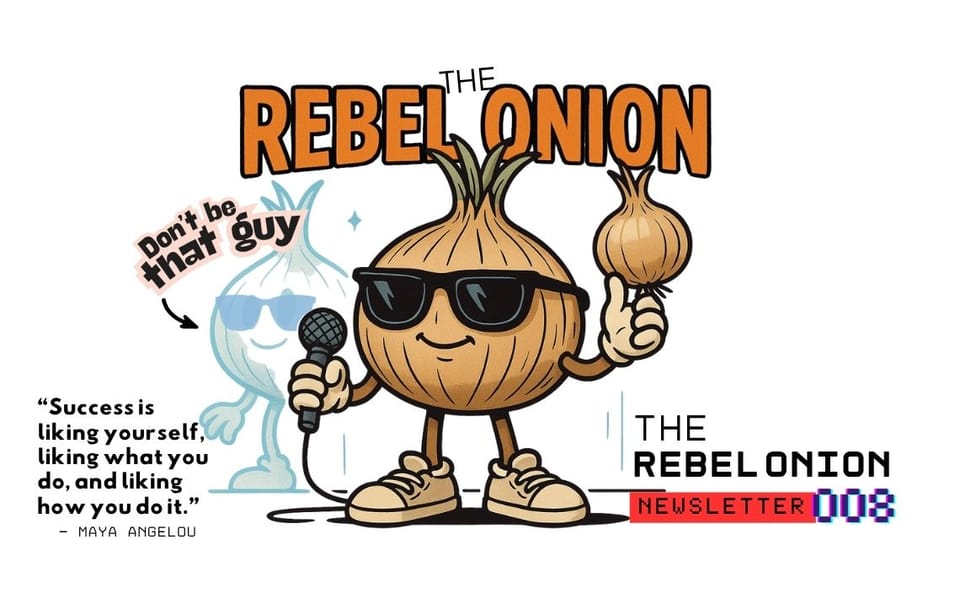
The Compliment Deflection Championship
"Great presentation, buddy—well done!"
And there you go again. "Oh, I was totally off track, forgot an entire section," and somehow you go completely off topic and blurt out, "last night I barely slept." You watch their face shift from admiration to concern. Congratulations, you just won gold in making yourself invisible when you should be most visible.
I learned this lesson the hard way. A client once praised a design project I'd poured hours into. Instead of saying "thank you," I launched into a detailed breakdown: "I just used a simple font, grabbed a trending style, blended it together..." I watched the light in their eyes dim with each word. Finally, they stopped me mid-sentence: "Stop explaining the magic and take the compliment."
The shame hit like a brick wall, but it was also such a learning lightbulb moment.
The Invisible Expert
Here's the thing about our translucent layer peel- we become see-through right when we should be solid. We've spent years, sometimes decades, building expertise, developing skills, and solving problems. We're overnight successes twenty years in the making. Yet when someone acknowledges what we've built, we panic and make ourselves disappear.
I grew up putting out fires in a family business. Problems were constant, praise was rare. You handled what needed handling, learned what needed learning, and moved on to the next crisis. Along the way, I developed so many skills—improving our sales game and even honing my comedic charm. I've learned that you have to touch people's heart, before you ask for their hand. But compliments felt foreign, almost dangerous. What if accepting them made me arrogant? What if people saw through the recognition to some imagined inadequacy underneath?
But here's what I discovered: When you point out the flaw in your design work, suddenly that's all the client sees. When you deflect praise by listing everything that went wrong, you're literally teaching people to see you as flawed. You're training them to look through you instead of at you.
The Cost of Disappearing
We think we're being humble, but we're actually being invisible. We think we're avoiding arrogance, but we're creating something worse - we're becoming ghosts of our own expertise. Every deflection is a small act of self-sabotage. Every "oh, it was nothing" is us stepping backward when we should be standing firm. I'm still unpacking my own childhood "daddy love me" moment - the ways we learned to shrink when we should have been celebrated.
The comedian Dane Cook once joked about his father's "tough love" approach: "At a certain point, I was like, 'Hey dad, when does the love part come in?'" Maybe that's what we're really after - not ego stroking, but simple acknowledgment that what we've built matters.
Standing Solid
Your translucent layer tricks you into thinking everyone can do what you do. But if that were true, why are they complimenting you? Why are they coming to you for solutions? Why are they paying you for your expertise?
When someone recognizes your work, they're not seeing through you - they're seeing you. The real you. The one who shows up, solves problems and creates solutions. The one who's been building something worth noticing.
The magic isn't in the font you chose or the technique you used. The magic is in the twenty years of learning, failing, adapting, and growing that led to that moment. The magic is you, standing solid instead of see-through.
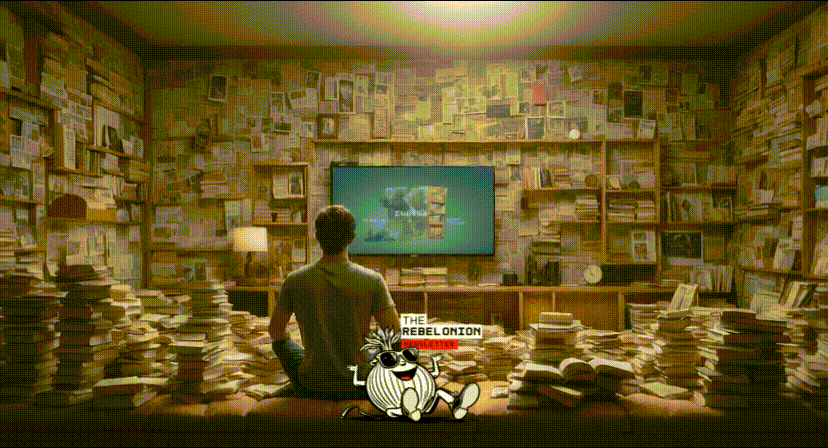
The Question That Changes Everything
Next time someone offers genuine praise, try this radical experiment: Just say "thank you." Feel the words. Let them land. Notice what happens in your body. Notice the urge to deflect, explain, or minimize. Then ask yourself:
What would happen if you let people see what you've actually built instead of teaching them to see through you?
"Our deepest fear is not that we are inadequate. Our deepest fear is that we are powerful beyond measure."
—Marianne Williamson
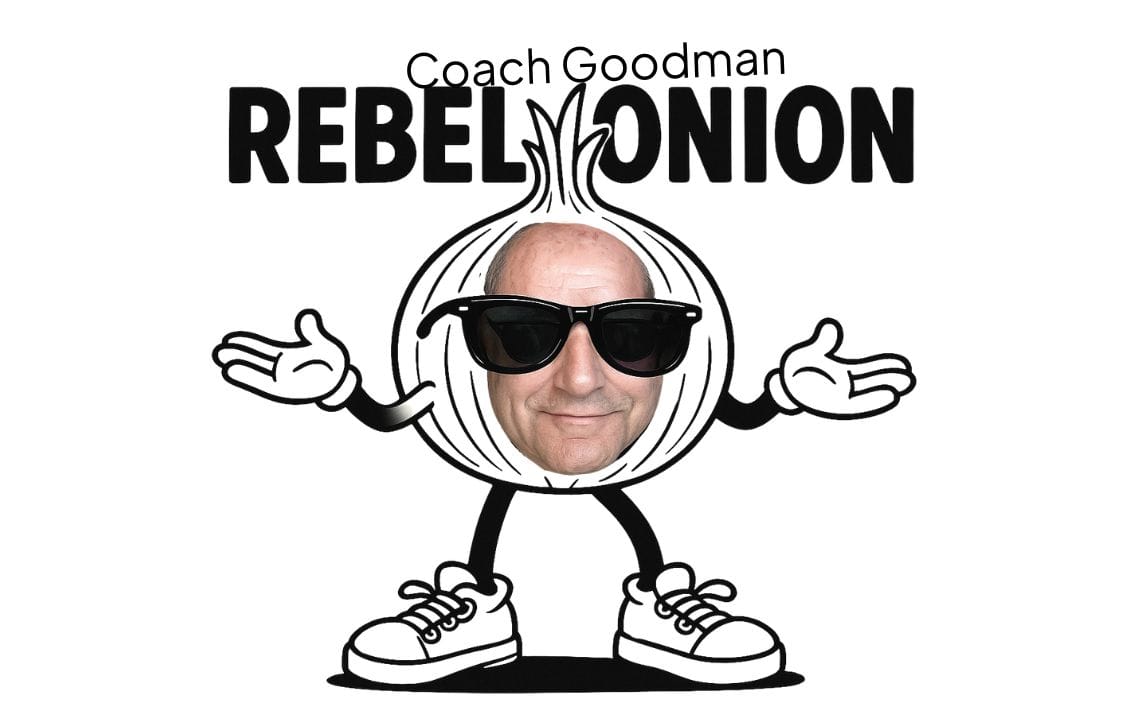
Being Coached Layers: The Courage to Be Seen
This week, Dr. Goodman says, "You took the words right out of my mouth." As we soul-search, we uncover all the times we've unwittingly diminished ourselves by deflecting praise, sometimes even feeling like imposters. This "Peter Pan Syndrome" means we've become so skilled at minimizing our own achievements that we don't even recognize it. The antidote? A willingness to embrace the discomfort that comes with truly accepting the praise you've earned.
Unless you bear the discomfort of owning your brilliance, this scenario will keep repeating. Instead, flip the script: say "thank you" and let that acknowledgment fuel you to stretch to the next level of your creativity. Imagine Thomas Edison downplaying the lightbulb! Breakthroughs only happen when we overcome this reluctance and keep pushing.
Ask yourself: When was the last time you simply said "thank you" for a compliment you received?
Bookshelf Peeled - The Courage to Receive
This week, when in doubt, I turn to Brené Brown's audiobook Daring Greatly. She articulates perfectly why accepting praise, and the discomfort that comes with it, can feel so terrifying.
Brené shows us that vulnerability is courage, and allowing ourselves to be seen in our brilliance is incredibly vulnerable. When we deflect praise, it often stems from a deep fear of unworthiness—like trying to keep an inner layer hidden.
But worthiness, like an onion's core, isn't something you earn; it's something you cultivate by daring to be seen. So, simply saying "thank you" becomes a powerful act of peeling back that translucent layer, stepping solid into your earned expertise, and owning your true story.
I also, since forever, reference Brené on her TED Talk, where she references Theodore Roosevelt's "Man in the Arena" quote, stating that if someone is not actively participating and facing challenges in the arena, their feedback is not valued. She is not interested in or open to feedback from those who are not "getting their ass kicked" in the arena. I always reference that.
Daring Greatly: How the Courage to Be Vulnerable Transforms the Way We Live, Love, Parent, and Lead. By Brené Brown.
Design Rebel: From Prompt to Polished
This week's creative process felt deep, yet refreshingly quicker. I kick things off by prompting Sora by ChatGPT for the main cover image, then refine it in Photoshop or Canva. That same prompt then goes into Leonardo.AI, where I experiment with many versions, always seeking the perfect visual. I add motion, iterate, and continue generating until I have enough renders to craft a compelling story—I just can't bear to lose these amazing creations.
This week, I loved all four lifelike images from one prompt. The script came to me in a dream at 5 AM. I quickly downloaded the images, wrote the script in Gemini, and formalized my ideas. Four different voices were rendered via ElevenLabs.io, then edited in Wondershare Filmora. After adding the perfect song, I realized the final touch: a big "THANK YOU" font to drive the message home. Perhaps I should have just said, "Here's the video, and thank you."
The Rebel Onion Video Art - Just take the compliment —You Earned it!
Weekly Inspired Insights I liked or found useful this week:
I looked up the moment I talked about above, where Brené Brown discusses my favorite way of putting yourself in the arena. It will play at that moment, from the 6:48 to 9:30 mark. Get it inspired or terrified.
P.S. If this resonates with you, share it with someone. I'm dedicated to helping fellow explorers—or anyone who found this page—uncover their authentic self with humor and insight. We're all in this together, finding the courage to truly live from our core essence (or as close as we can get!).
The Ring Layer: Your Seasonal Growth (Tentative title)

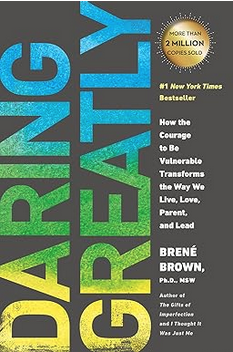
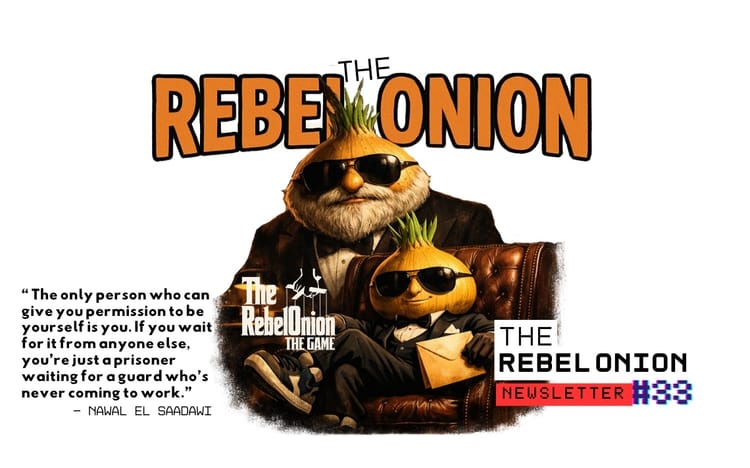
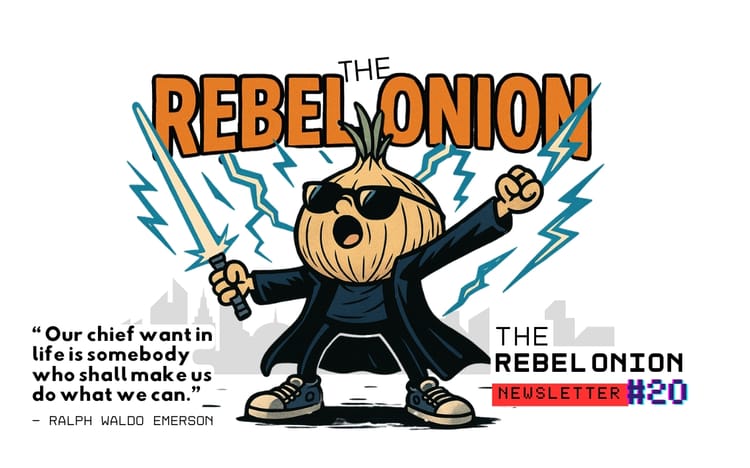

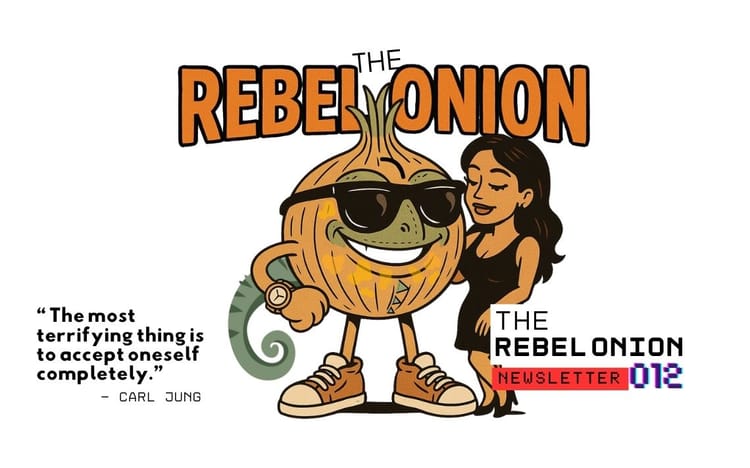

Member discussion